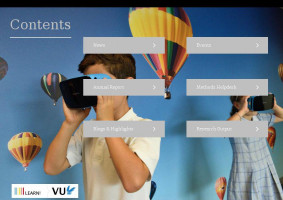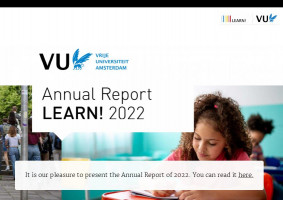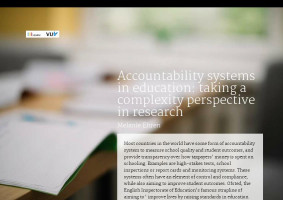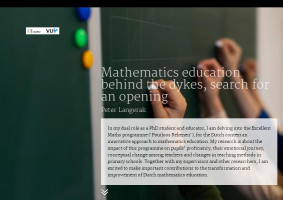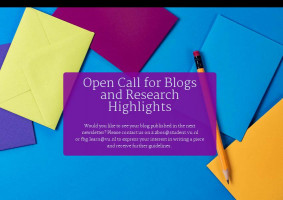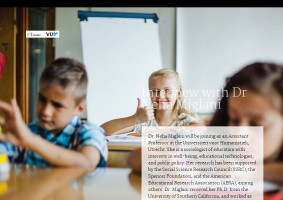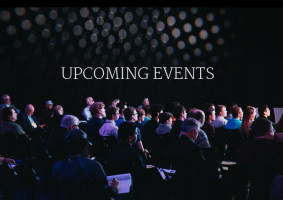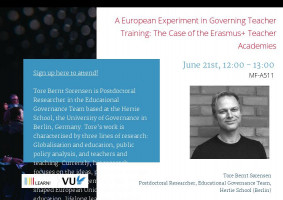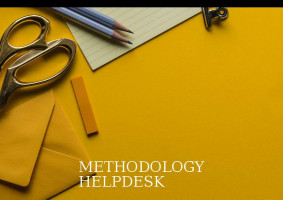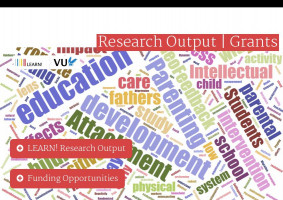Dr. Neha Miglani will be joining as an Assistant Professor at the Universiteit voor Humanistiek, Utrecht. She is a sociologist of education with interests in well-being, educational technologies, and public policy. Her research has been supported by the Social Science Research Council (SSRC), the Spencer Foundation, and the American Educational Research Association (AERA), among others. Dr. Miglani received her Ph.D. from the University of Southern California, and worked as an Assistant Professor at Florida State University before moving to the Netherlands.
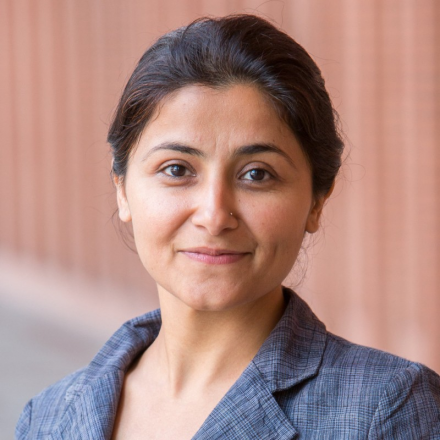
You presented at a LEARN seminar last month about educational well-being; could you share more about your broader interest in the field?
Over the last two decades children and young populations' lack of well-being has become a global concern. Educational policy and practices across the world are discussing student, and sometimes teacher well-being. As a response, schools are adopting various interventions towards student well-being such as social-emotional learning, 21st century skills, life-skills, happiness, character, vocational education etc. The COVID-19 pandemic has understandably intensified this focus. I have been closely following this discourse and developments in the education sector in various countries. What fascinates me most is an 'educational turn' in the conceptions of well-being itself. Well-being is no more a thing in the abstract, not a retrospective reflection of life lived a certain way. It has become a 'skill' to be acquired, to be actively pursued, and practised on specific dimensions. The obvious questions for me were:
How do you learn to be well? More importantly, how do you teach others to be well? What are the possible pedagogies of well-being?
How do you define and measure educational wellbeing in your research? Are there any particular frameworks or models you employ?
Even though there is so much talk about well-being, there is relatively less consensus on how to define it. It is seen as subjective, i.e. interior to a person, or objective i.e. having externally observable characteristics, such as housing, education etc. Many conceptions see well-being as closely related to health. Well-being is seen to have an aspirational quality, encompassing combinations of physical, emotional, psychological, spiritual, social, and material dimensions. Realising these multidimensional characteristics I do not start with an a priori definition of well-being. My interest is not to measure quantitatively how well or happy people are.
Instead, I explore how people make sense of it, what meanings they give to being well. And this anthropological focus allows for inclusion of different definitions that might sometimes be contradictory too. In the case of a specific intervention called the Happiness class implemented in government schools of Delhi in India, the teachers used the terms happiness, well-being, being content, good mental and physical health almost interchangeably. So there is a contextual element too.
If you were to briefly answer these questions yourself, what are the possible pedagogies of wellbeing based on your experience? How do people, and especially students, learn to be well?
It’s complex and there are several things. But if I was to answer briefly, I would talk about three things. One, I have found that educational well-being - involving conscious teaching and learning of being well - is a deeply embodied project. Bodies become both the means to achieve well-being as well as the end sites where well-being can be potentially realised. Second, in formal educational contexts like schools, well-being is very much influenced by teachers’ moral frameworks, and in some contexts gets deeply intertwined with a sense of embodied discipline. So I have highlighted the need for teacher well-being and working with teacher beliefs as opposed to simply transmitting a skill-set in training. Third, relatedly, many popular interventions that explicitly target student well-being have too much of an individualised focus, while ignoring the relationality in being well. We need to imagine more holistic and integrated interventions that equally focus on the larger institutions of schools, and examinations etcetera.
How would you say this applies to education in the Netherlands?
First of all, the focus on overall well-being of students is not a novel concern. Many thinkers, including the Dutch philosophers, Erasmus and Spinoza articulated concerns around related areas of morality, ethics, and citizenship. Of course there is a heightened focus on bringing initiatives that explicitly target student well-being. And it is partly inspired by research and trends around rising rates of students’ school-dropouts, inclination to violence, depression and suicides here in the Netherlands, but also more generally in Europe. Dr. René Diekstra's work has captured some of the historical influences on specific interventions in the country, especially influences from therapeutic movement, focus on community and inclusion of civic skills.
The Skills for Life education programmes for schools taken up by the greater city of Rotterdam in the 1990s were arguably the first organised effort in this direction. Ever since, the specific educational interventions, services, and research around social-emotional learning, positive behaviour support, and skills for life have only grown. There are recommendations around these areas from the European Council as well. Earlier this week, I was reading a news item about several youth organisations in the NL handing over a petition to the House of Representatives to include social-emotional learning in their curriculum.
The other strand of your research focuses on educational technologies. Could you briefly describe your work in that area?
My research with Dr. Particia Burch on educational technologies (EdTech) has focussed on the values, institutions and symbols that undergird its increasing uptake in schools. There is of course the promise of personalization, adaptive learning and potentially innovative pedagogies, but also the values assumed around privileging data and making numbers central to educational governance. We highlighted the institutional complexity in which typical EdTech interventions unfold as well as the evolving role of teachers in making sense of all this. There is comparative work too that highlights how some philanthropic organisations add to how EdTech is imagined for pedagogical reforms.
What are some of your future research plans?
I am really looking forward to collaborating with, and learning from the inspiring work of colleagues here. My next project brings together my research on well-being and EdTech. Post covid-19, there is an increasing consensus on making both well-being and EdTech central to educational reform. There is a large-scale, policy level promotion of well-being through educational technologies. For example, UNESCO, OECD, the World Economic Forum, and governmental bodies including the European Council have released recommendations around it. Mobile based well-being apps are just one part of the offerings. Other technologies are being utilised to offer interventions such as Affective Tutoring, wearable bands that monitor moods, heart rate etcetera. At the same time we know from a lot of research (and personal experience) some of the dangers of digital technologies for well-being. My main interest is to explore the possibilities of flourishing, care, and inclusion created via technology and digital mediums.

